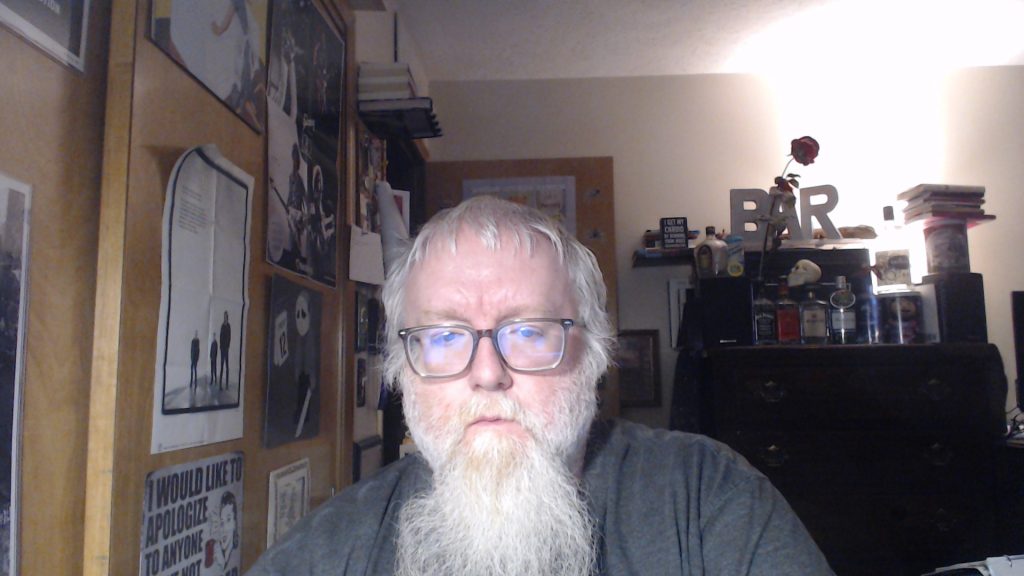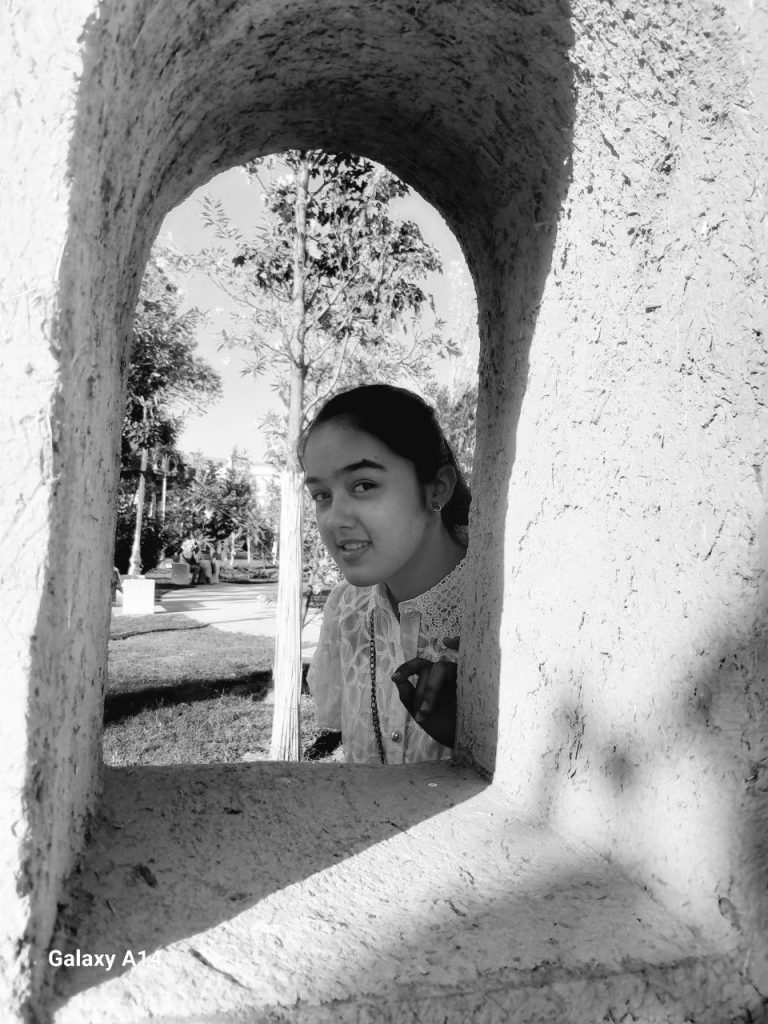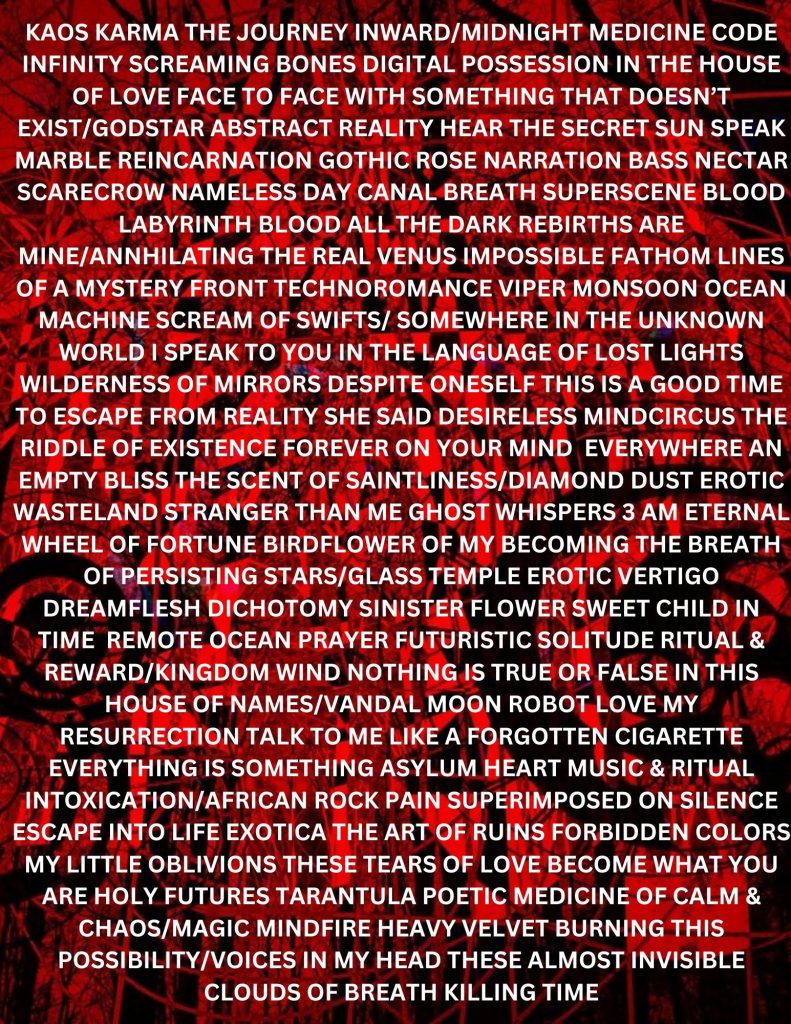Memories of Spring in the North
Spring in the north is slow and difficult,
like slow motion, every detail is exceptionally clear,
every sprout of grass brings joy,
branches become soft, less prone to breaking.
After a strong wind, we wander in the countryside,
the colours of the fields deepen, gleaming in the light,
bare hillsides, snow turned into shadows,
the wind penetrates our clothes, as we lie on the hillside for a while,
the earth gently trembles, vibrating through our ribs,
lifting a clod of soil reveals
rows of white roots as fine as hair,
those were the innocent days, like birch trees, free and melancholic,
you thought you would stay in this city forever,
in old Slavic yellow houses,
with vinyl records, brass candlesticks, green lattice windows,
the hazy, enigmatic gaze of old photographs,
drinking until late at night, sometimes we wouldn’t say anything,
just listening to the darkness outside,
as if expecting something to happen,
yet nothing ever did.
You walk home alone slowly,
on the quiet, deserted street corner, a lilac tree
emits a faint but persistent fragrance,
like those friends who have long departed this world.
Silence at Nightfall
It’s already too late, to pursue the study of life,
but studying death is nothing more than listening
to a vague whisper through the bushes,
as if something is about to happen,
like a small glass jar of a streetlamp
rises on water, delicately
wavering with small fishes of flickering flame.
Words on the doormat in front of the door,
How do they resist the winter floods?
Talk about rainy days, heatwaves, or distant battlefields
can also bring about dangerous moments, truth
swings between a dependence on things and a dependence on people.
“You are to bring Harbin to Nanjing
instead of bringing Nanjing back to Harbin.”
Deceased loved ones guide me in my dreams,
faith is a matter of geography.
Immersed in the unpredictable,
what you want to do is what others want you to do.
And if you act according to opinions, you will find yourself
in the terror and silence of a Pascalian universe,
where all opinions are nothing more than
your encounters with some people when walking alone at night,
exchanging unclear words with each other
before quickly disappearing into the darkness they came from.
Is it knowledgeable ignorance, or blissful ignorance?
Prometheus warned Sathiel to be careful of fire,
Plato said all writing is a public act,
while you say, writing is rhetoric, which turns people into citizens
and then turns citizens into mobs,
using games to gather thugs in the caves of Rome.
A Cat Looks at Me
A cat halts at the foot of the building,
gazing at me as if looking elsewhere.
Its ears float above the low bushes.
It maintains a walking posture, never sits down
It looks at me as if at an unnamed body,
as if I have no name, no clothes, no identity to be labeled.
My past deeds disappear in the waves at the end of the dam
and the future is just a gaze. I halt my steps
after all, this is a real cat, not a ghost,
A stray, not mine, nor anyone else’s,
It belongs to itself, not a word.
The air between us seems to thicken and grow stale
When its existence on the brink of stepping out of fur
all changes halt along with subtle regrets.
It no longer converts to my standpoint,
but it feels more like a silent blessing and salvation.
It’s just this ordinary and specific cat
quietly stepping out of the vast and blurry array.
It’s not from the childhood libraries and corridors,
the fables of cats chased or followed by people.
In an instant, my existence is laid bare,
my memories and loves turn into shame.
I become ignorant of good and evil, history and labor
with a gentle flick of its ears, I disappear.
After all, this is a genuine cat looking at me
It turns me from an individual into humanity.
My hollow existence like a frozen posture,
one of us must first depart this place,
leaving the other in unnamed death.
A New Poem to Ease the Melancholy
On a spring morning, melancholy lingers,
Surely from dreaming of nameless things again last night.
The revelations it brings are hazy
the grand halls left dim as gods depart,
The stubborn black sheep emerges wrapped in mist everywhere.
Perhaps late loved ones once wore darkened faces,
Sitting by my bedside, gazing at me in deep slumber,
Only to leave disappointed, without a word spoken.
The old house I couldn’t preserve grows shorter and shorter
And cherries the size of thumb tips illuminate the eaves.
Perhaps there were giants treading mountains,
Stacking peaks against the void in a fiery revolution,
And you didn’t know which side to stand on,
You were preoccupied with thoughts,
like a harvest god adorned with flowers,
Forgetting to count pods, grains of salt, seeds, and years.
Perhaps there was a enchanted fairy island,
Lost in treacherous seas,
Taking with it knights crossing the night sea,
And the maiden gazing from the cliffside window.
Or perhaps it’s you, solemn muse of my poetic gaze,
As I toy with words like a brave tin soldier,
Unknowing of good, not calculating human evil.
You lift the veil, pass over my shoulders,
Gaze down upon my harmless play.
I dare not look back.
Your breath brushes against my ears.
Perhaps there’s no evidence of a beach,
Where clear water slowly fills my footprints.
No tangled thickets, nor “cave of ideas”,
Only heat echoing the receding tide’s sound.
A day that begins with poetry may find salvation,
But it’s hard to say how it will engage this day’s daze.
Ma Yongbo was born in 1964, Ph.D, representative of Chinese avant-garde poetry, and a leading scholar in Anglo-American poetry. He has published over eighty original works and translations since 1986 included seven poetry collections. He focused on translating and teaching Anglo-American poetry and prose including the work of Dickinson, Whitman, Stevens, Pound, Williams and Ashbery. He recently published a complete translation of Moby Dick, which has sold over half a million copies. He teaches at Nanjing University of Science and Technology. The Collected Poems of Ma Yongbo (four volumes, Eastern Publishing Centre, 2024) comprising 1178 poems, celebrate 40 years of writing poetry.
…




